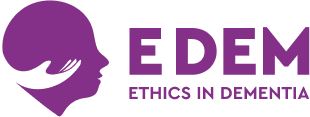Mapping of ethical dilemmas
Work group 2 will explore, map and analyze the ethical issues as they are experienced and reported by the stakeholders who are involved in it.
The workgroup aims to involve people with dementia directly as participants but also as a consulting group (together with informal and formal caregivers) on issues relating to the WG. As well as propose an evidence-based practice and theoretical framework for decision making and management of ethical dilemmas in dementia care.
Work group description WG2
Tasks
T2.1: Developing an appropriate stakeholder engagement plan.
T2.2: Mapping practice needs by:
- Arranging workshops with stakeholders, e.g. people with dementia, formal and informal caregivers, patient organisations, industry, health policy decision-makers etc.
- Identifying practical and educational needs among relevant stakeholders
T2.3: Empowering people with dementia by incorporating their experiences and understanding of the various ethical dilemmas into the Action, by establishing local dialogues with people with dementia
T2.4: Transferring the knowledge produced that WG3 can draw on in developing a practical European framework and recommendations for how to implement it.
Activities
- Members of the WG will meet twice a year for the duration of the WG. One of the first meetings will focus on designing a plan for involving relevant stakeholders in all participating countries (see 2.2.2 for recruitment strategies).
- Representatives from each country participating in the WG will conduct 1-3 workshops and/or a number of interviews with relevant stakeholders, e.g. from local NGOs, health professionals, health authorities etc. The data collection will be conducted prior to WG2 meetings, to inform the WG on practice needs and perspectives in different countries. The workshops will be conducted in accordance with “the theory of change workshop methodology”26. In this type of workshop, the participants identify the main stakeholders that might influence or have an interest in the desired impact. The participants then engage in backward mapping and identify the short- and medium-term outcomes that can lead to the desired impact. The result is represented using the ‘roadmap to change’ – a map that shows the various rigorously and consequentially structured outcomes and the preconditions for them. Interviews will be informal in character but use a semi-structured interview guide to explore practice needs and perspectives.
The combination of these initiatives will promote stakeholder involvement in the Action and produce data for a white paper on practice needs and submission of an intercountry journal editorial or commentary.
Deliverables
D2.1 Stakeholder engagement plan for how to precisely involve the stakeholders in the Action. Action Strategy (Y1Q1)
D2.2 White paper on practice needs. Publication (editorial or commentary) (Y3Q2)
D2.3 Submission of a scientific paper on perceived ethical dilemmas in dementia care. Publication (submission) (Y3Q2)
Team leader WG2
Daniel Sperling, S.J.D., B.A.(Philosophy)
Associate Professor of bioethics
Faculty member and Head of the Master’s Program in Nursing,
Department of Nursing, University of Haifa, Israel
Tel.: 972-4-8288687
Mail: [email protected]


